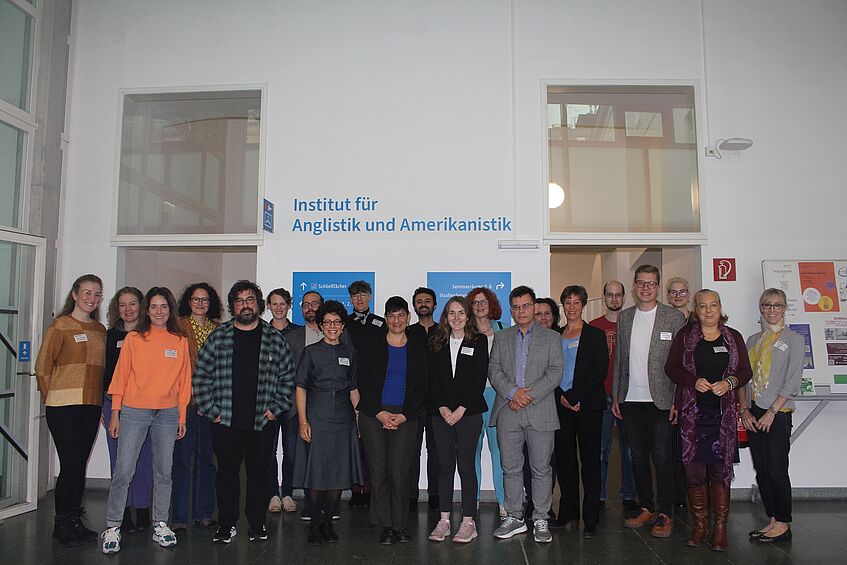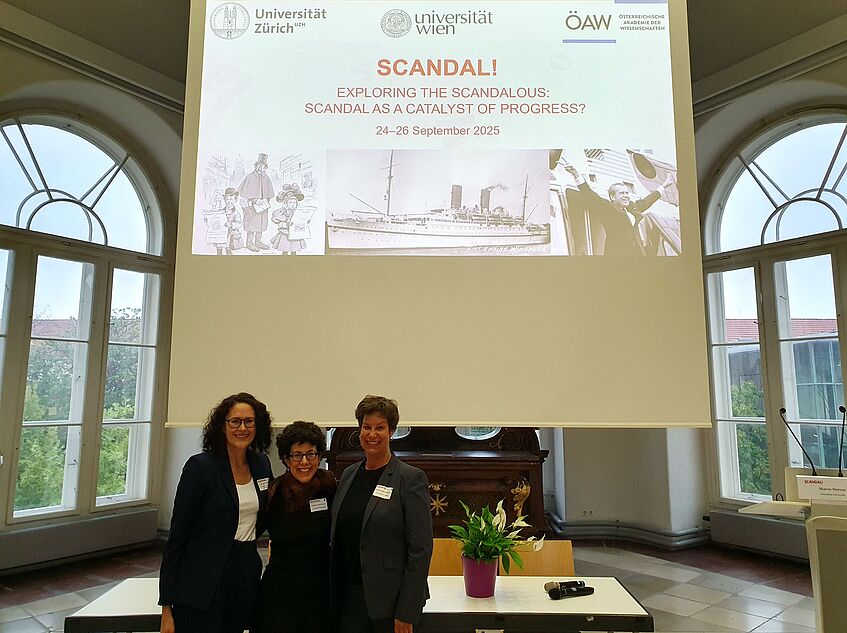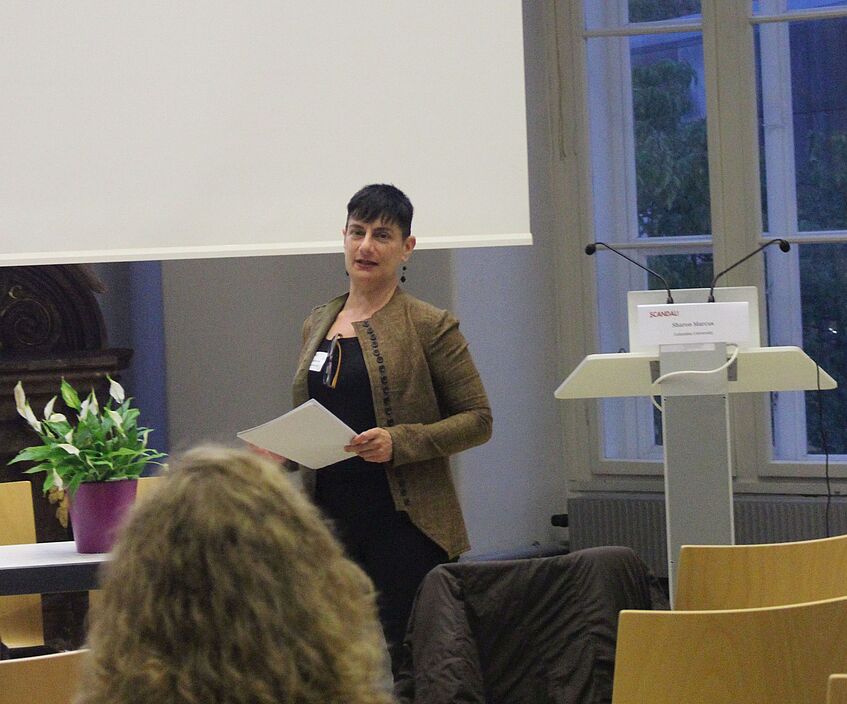Event note
From Wednesday 24th to Friday 26th September 2025, the international conference S c a n d a l ! Exploring the Scandalous: Scandal as a Catalyst of Progress? brought together scholars from diverse disciplines at the Department of English and American Studies, University of Vienna, to explore the concept of scandal in diverse Anglophone and German-speaking contexts of the 19th, 20th and 21st centuries.
Co-organised by Sylvia Mieszkowski (University of Vienna), Sandra Mayer (Austrian Academy of Sciences) and Barbara Straumann (University of Zurich), with the help of Ulrike Zillinger, Gizem Doğrul and Sarah Frühwirth, the workshop-style conference offered a rich academic programme that delved into the multifaceted nature of scandal and its potential as a catalyst for societal change.
Despite the rainy weather, the event was marked by thought-provoking presentations, lively discussions and a strong sense of conviviality.
The conference was opened by a keynote lecture delivered by Sharon Marcus from Columbia University, held in the historic Alte Kapelle on the university campus. The keynote was a highlight of the event, offering a structured and engaging 12-point framework for understanding the mechanics of scandal, which served as a foundation for much of the conference’s subsequent discussions. To test the validity of her framework, Sharon applied her 12 theses to the intriguing case of Mary Astor, an actress of Hollywood’s Golden Age. Astor’s diary, which vividly documented her affair with playwright George S. Kaufman, played a prominent role in her 1936 divorce and custody battle with Franklyn Thorpe. Though challenging societal norms of the time, Sharon argued that the scandal, like many others, did not spark change directly but rather mirrored societal shifts already underway.
Nevertheless, she noted that scandals can facilitate progress by normalising and solidifying emerging ideas. In Astor’s case, the scandal advanced the notion that women could be both competent mothers and passionate lovers, reinforcing challenges to traditional views of femininity – views that were already under strain during the Great Depression. For more insights into Sharon Marcus’s perspective on scandal, see her interview with the Austrian Academy of Sciences here.
The keynote set the tone for the conference, with many subsequent papers engaging with Sharon’s 12 theses. Over the course of two days, scholars from various countries, including Austria, Germany, Italy, Hungary, the UK, the USA and Canada, presented their research, examining scandal from historical, literary, cultural and socio-political perspectives. Topics ranged widely, including scandalous historical court cases, the scandalous marketing of horror movies, controversial books and theatre performances, cases of abuse of power, sex scandals, harassment scandals and scandals of political mismanagement. The diversity of approaches and subject matter underscored the complexity of scandal as a phenomenon that transcends time, place and disciplinary boundaries.
The social programme of the conference provided ample opportunities for informal discussions and networking. The conference warming on Wednesday evening took place at the private event location Omar, where participants enjoyed excellent drinks and antipasti in a relaxed atmosphere.
On Thursday evening, the conference dinner was held at the traditional Viennese wine tavern 10er Marie, where attendees were greeted by local councillor and member of the state parliament Cornelia Sucher (SPÖ) and savoured Austrian delicacies, including the seasonal speciality “Sturm” (new wine), made possible with generous financial support from the Vienna City Hall. These gatherings allowed participants to continue their conversations in a relaxed setting, fostering connections and collaborations.
The conference also featured impressive papers by talented graduate students. To celebrate their contribution to the discussions, the conference included the awarding of the Best Paper by a PhD Student prize. After a vote, in which all conference participants took part, Rachel Peacock (Queen’s University, Canada) was announced as the recipient of the award, which came with a small cash prize but, more importantly, the honour of recognition for her outstanding contribution to the conference.
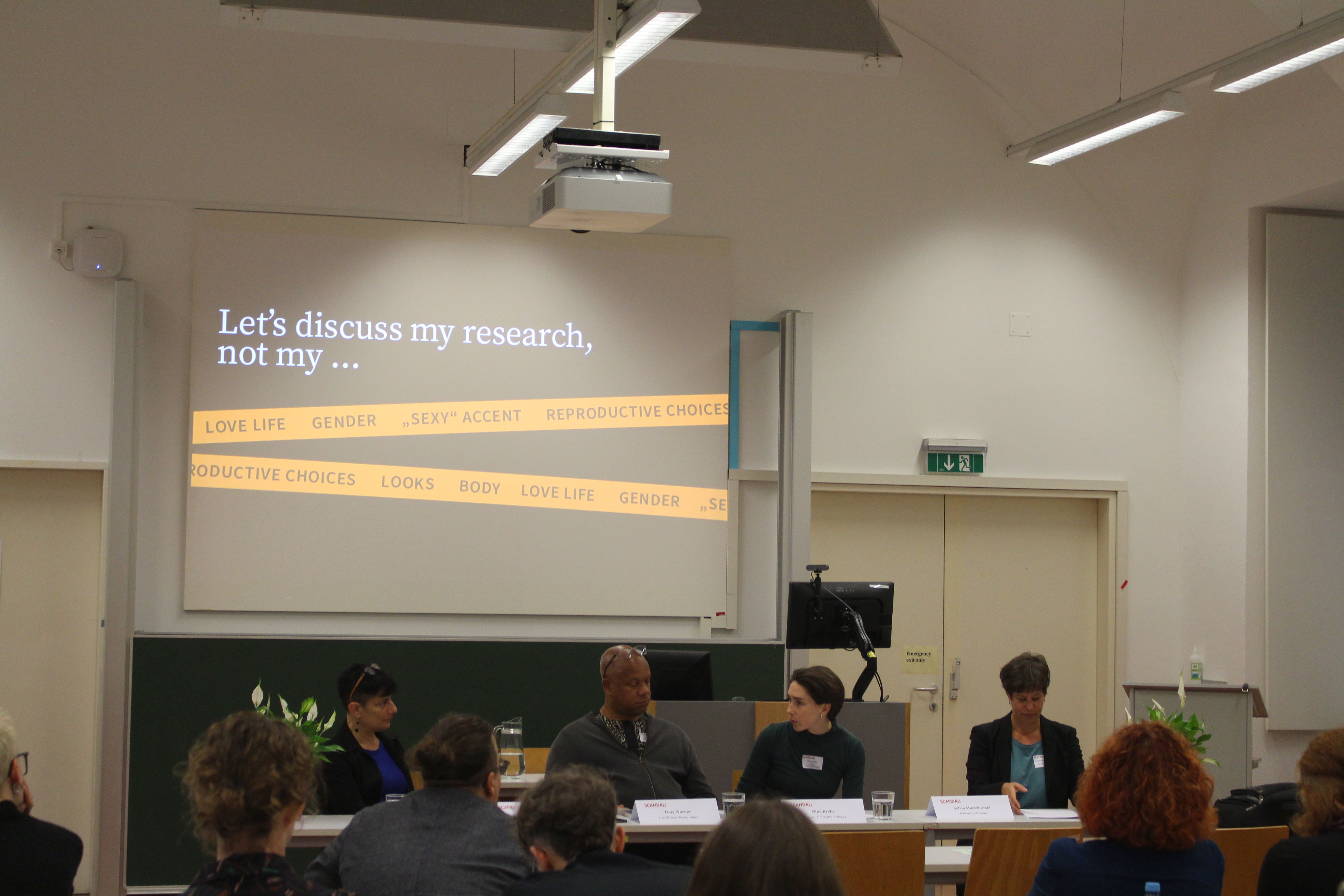
The paper presentations concluded on Friday with a dynamic panel discussion moderated by Sylvia Mieszkowski. The panellists included Sharon Marcus, the conference’s keynote speaker; Tony Warner, the founder of Black History Walks in London; and Nina Krebs, responsible for the u:respect campaign at the University of Vienna. The discussion provided a platform for reflection and synthesis, tying together loose strands from the conference and establishing connections to various individual papers presented over the previous two days. The panellists began by reflecting on the question of which scandal had a formative influence on them and prompted them to pursue their current work. The discussion also explored the different nuances of the word “scandal” in English and German, revealing further layers of meaning and complexity inherent in the concept. Additionally, the panellists reflected on types of scandal that had not been addressed during the conference, such as financial scandals and environmental scandals, broadening the scope of the conversation.
Two of the panellists, Tony Warner and Nina Krebs, offered insights into their work, illustrating scandal’s potential for catalysing change for the better. Nina discussed the u:respect initiative at the University of Vienna, which aims to strengthen the prevention of sexual harassment and implement a more effective reporting system. While the campaign did not develop in response to a specific scandal, it emerged in the wake of various high-profile sexual harassment scandals, such as the Harvey Weinstein case, which brought global attention to these issues and underscored the need for institutional action. Similarly, Tony shared details from his textbook, Migrants in Britain c. 800–Present, which covers the key knowledge for Pearson Edexcel GCSE (9-1). Tony’s book seeks to make minority voices visible, showing their essential role in shaping both Britain’s past and present and, at the same time, foster a deeper understanding of the historical and still pervasive challenges and structural inequalities faced by marginalised communities – issues that were starkly brought to light by events such as the Windrush scandal.
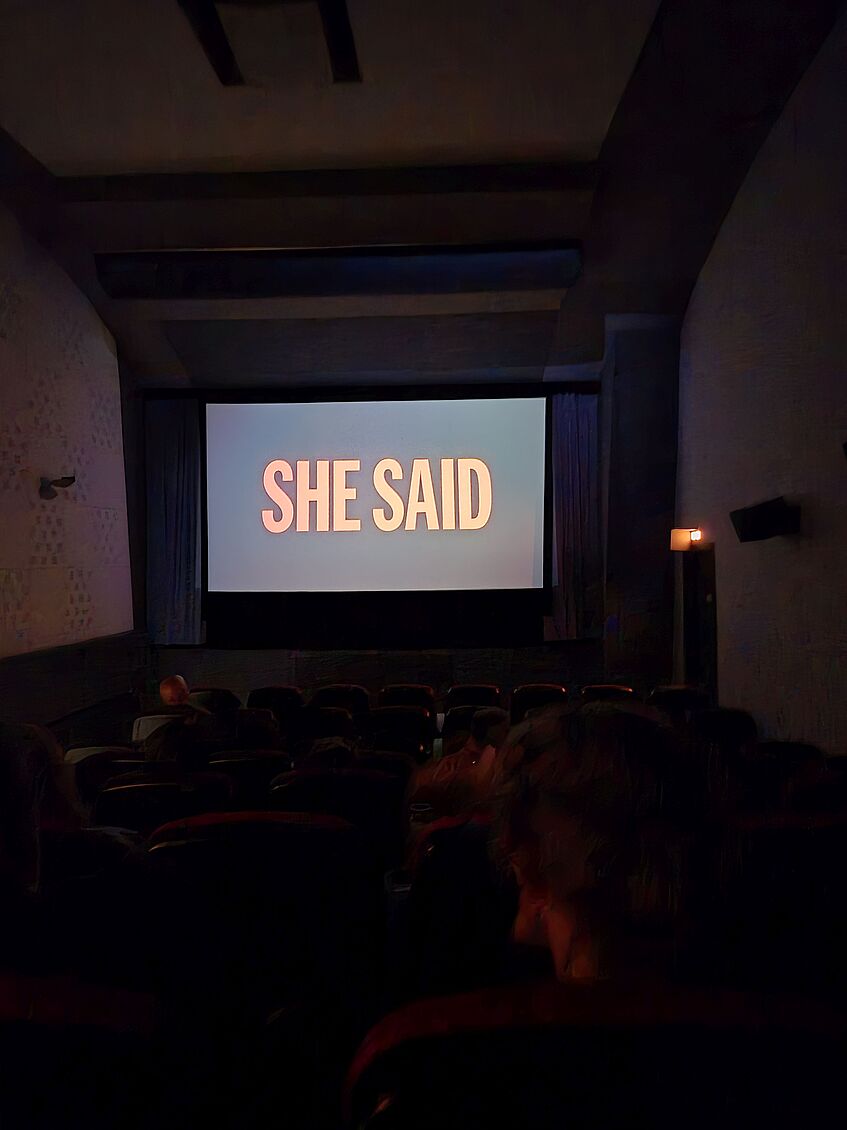
To round off the event, part of the conference attendees made their way to the nearby cinema (Votivkino), where the organising team had reserved an auditorium for an exclusive viewing of Maria Schrader’s She Said (2022). Conference co-organiser Barbara Straumann introduced the feature film, which is based on the eponymous book by the New York Times journalists Jodi Kantor and Megan Twohey, whose reporting broke the scandal and kicked-off the #MeToo movement.
The film depicts the investigative work and emotional labour that went into researching Harvey Weinstein’s decades-long sexual abuse, tracing carefully how victims had to overcome barriers of shame and how witnesses had to become aware of the effects of their complicity to break the silence that had shielded Weinstein from being held accountable. This screening provided a fitting conclusion to a conference that explored the multifaceted nature of scandal and its role in shaping societal change.
(Event note and photo of co-organisers by Sarah Frühwirth,
all other images ©Gizem Doğrul)

